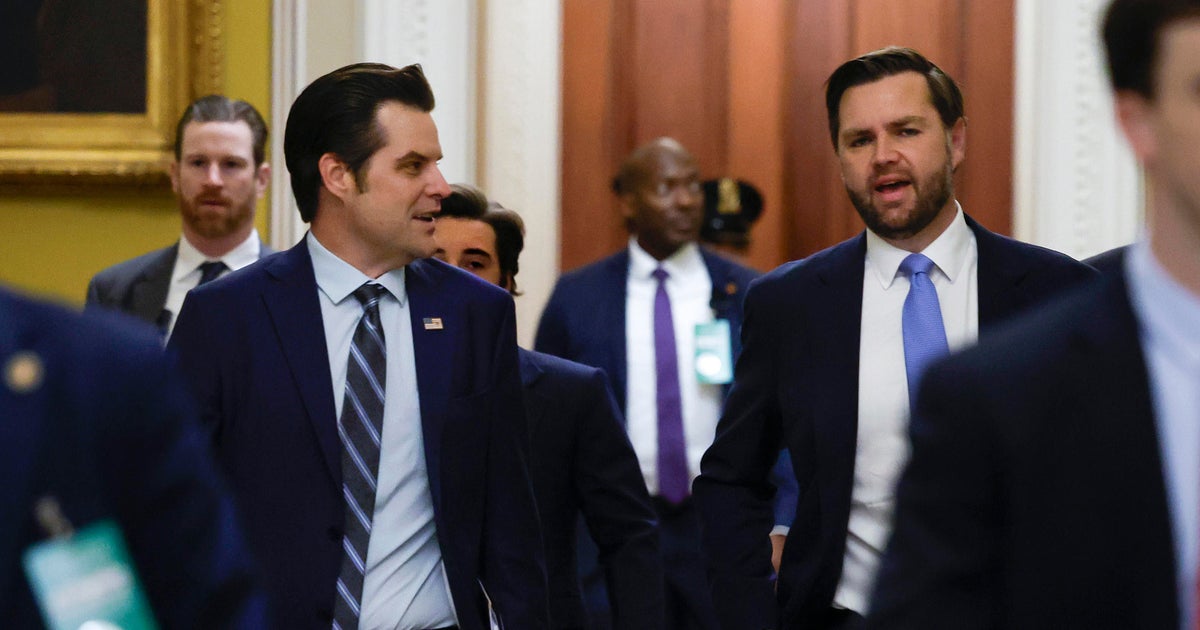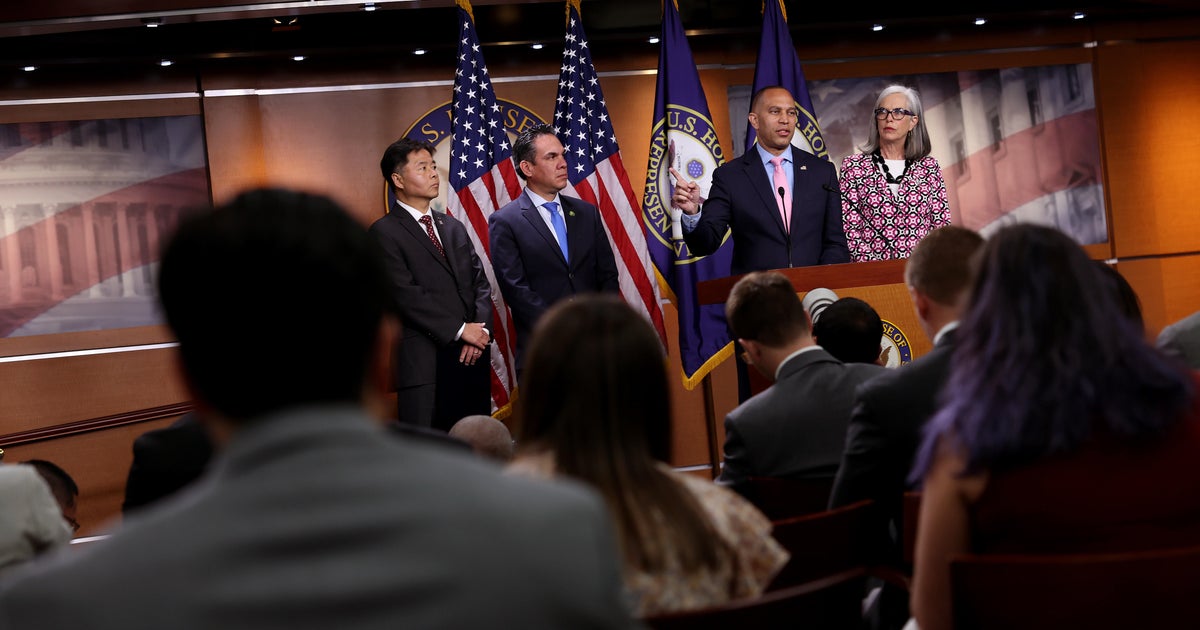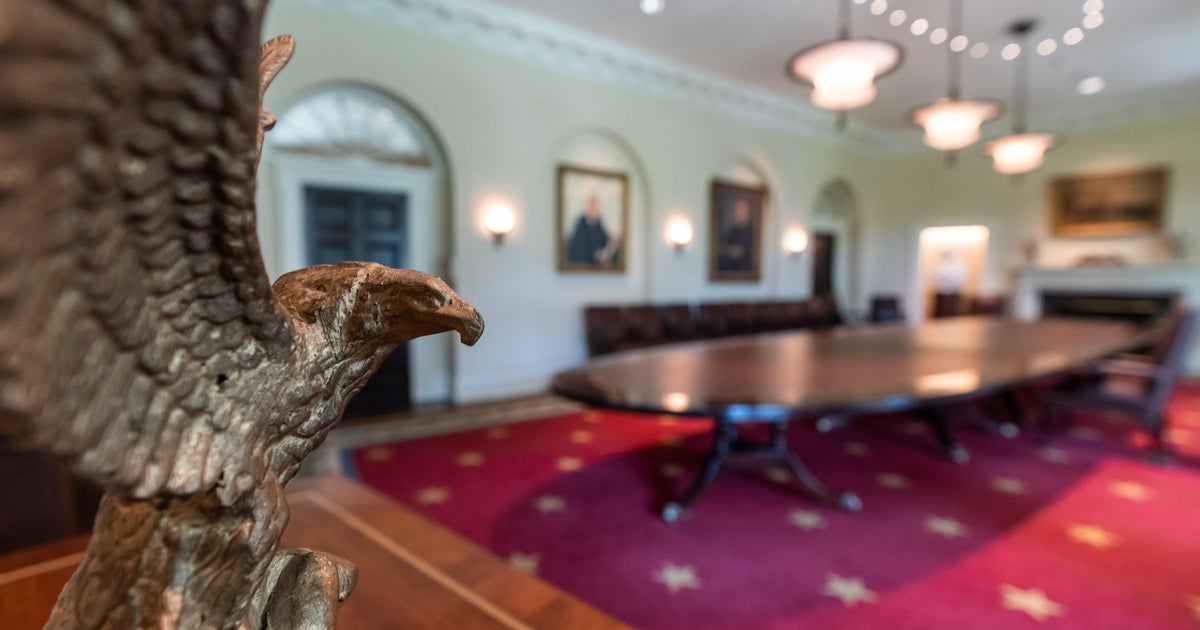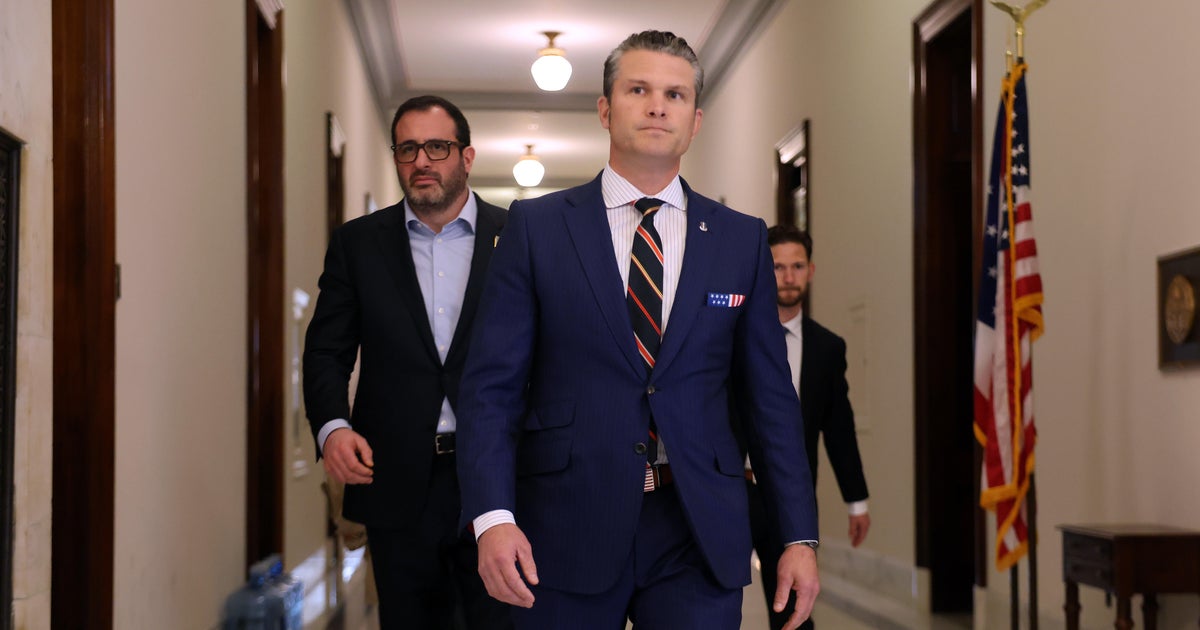Virginia and New Jersey were safe Biden states. Will the governors' races be as easy for Democrats?
This year's gubernatorial races in Virginia and New Jersey could both serve as barometers for both parties heading into the 2022 midterm elections, when control of the House and Senate are up for grabs as well as 36 governors seats.
The races have focused on some similar issues: handling the COVID-19 pandemic, access to abortion, the economy, and both the current and former occupants of the White House.
In Virginia, former Democratic Governor Terry McAuliffe is locked in a tight race with Republican businessman Glenn Youngkin. Further north, New Jersey's Democratic incumbent Governor Phil Murphy has maintained a larger lead in the polls, but finds his race with former Republican Assemblyman Jack Ciattarelli tightening as the race enters its final stretch.
Virginia
McAuliffe is looking to repeat a feat he pulled off in 2013: win the governor's seat in Virginia the year after his party wins the White House. McAuliffe is the only person who has pulled it off in the past 44 years, which he notes on the trail.
Republican businessman Glenn Youngkin is looking to be the first Republican to win statewide in Virginia since 2009.
Both candidates are testing how to run campaigns in President Biden's first year in office, as well as in a post-Trump era.
In the closing weeks of the race, McAuliffe and Virginia Democrats have faced headwinds from Mr. Biden's stalled infrastructure and reconciliation package in Congress, and his slog in approval ratings. A Wednesday poll from Emerson College/Nexstar Media showed a 48% disapproval rating for the president in Virginia, and a 1% lead for McAuliffe.
In September, McAuliffe pressed Congressional Democrats to "stop posturing" and pass the infrastructure bill. During the last debate, he said the $3.5 trillion figure for the reconciliation bill was too high.
And in a virtual event with the Central Virginia Democratic party on Tuesday, McAuliffe said, "We are facing a lot of headwinds from Washington as you know. The president is unpopular today unfortunately here in Virginia."
Stephen Farnsworth, a political science professor at University of Mary Washington, said Mr. Biden's ability to sell his agenda will be "significantly deteriorated" if Republicans win the governor's mansion in Virginia.
"If a Biden-like message offered by McAuliffe doesn't succeed in purple Virginia, a lot of Democrats around the country will wonder if it makes more sense to chart a more independent course," he said.
While Democrats had statewide wins in Virginia before Mr. Trump, suburban backlash caused the commonwealth to speed up its transition from a competitive swing state to one Mr. Biden won by 10 points in 2020.
"The larger issue [for Democrats] is Trump is an ex-president. He was a very useful foil for Democrats to run against in Virginia over the last several election cycles, and now they may very well miss him now that he's gone," Farnsworth said about the current gap of enthusiasm for Democratic voters.
McAuliffe has repeatedly said at debates that Youngkin is a "Trump wannabe," alluding to his embrace of "election integrity" as an issue, his endorsement from the former president and appearances on right wing radio. But in the closing months of the race, his campaign has focused on contrasts between him and Youngkin on abortion, COVID-19 vaccine mandates and raising wages.
McAuliffe has called Youngkin's opposition to any COVID-19 vaccine mandates "disqualifying" and "life-threatening." Youngkin, who is vaccinated, said he supports vaccination but believes the choice should be left up to individuals. Republican Lieutenant Governor candidate Winsome Sears, a state delegate who shares the ticket with Youngkin, said she encourages vaccinations but declined to reveal if she was vaccinated in an interview with CNN.
A Monmouth University poll from late September listed the economy, COVID and education as the state's top issues. While over 13,000 Virginians have died from COVID, the state's cases are on the decline after seeing a spike in early September, according to the Centers for Disease Control and Prevention.
A former CEO of the investment firm the Carlyle Group, Youngkin has pitched McAuliffe as a regression for the commonwealth's economy. He has recently dialed into comments from the second debate, when McAuliffe defended his veto of bills that would require parents to be notified about sexually explicit content in assigned readings.
Quentin Kidd, the dean of Arts and Sciences at Christopher Newport University, said Youngkin's business background and being a first-time political candidate has helped keep this race close.
Kidd added that Youngkin has still been "flirtatious" with issues that feed the Trump base of the party, such as doubts about the election process and "critical race theory." Youngkin also said he'd support Mr. Trump in 2024 if he is the party's nominee.
Youngkin has said he believes Mr. Biden's win was certified and fair, and that there was no material fraud. Yet, during a virtual forum on Monday, Youngkin called for a regular audit of voting machines.
Virginia's Department of Elections released an audit report on the November 2020 elections earlier this year and confirmed their statewide results in 2020 "with over 99% confidence."
"If Youngkin manages to pull this off-- it's because he basically walked a spider web across two really tall buildings. One of those buildings is the base of the [GOP] that loves everything about Donald Trump, and the other one of those tall buildings is suburban moderates," Kidd said, adding his win will be "a roadmap for Republicans nationally going forward."
From July to September, McAuliffe raised at least $11.5 million and has $12.6 million in the bank. Youngkin loaned $16.5 million to his campaign thus far and raised $11.1 million in the same time period.
Early voting in the state began September 17 and ends October 30. Virginians can apply online to vote by mail, and if they vote in person on election day, will have to bring a valid photo ID.
New Jersey
Murphy heads into November with some advantages that McAuliffe lacks. There are 1 million more registered Democrats than Republicans in New Jersey, Mr. Biden won the state by 16 points, and Murphy has held a larger lead in public polls, though they've tightened a bit in recent weeks.
Murphy is hoping those trends help him become the first Democratic incumbent to win reelection in New Jersey since Brendan Byrne in 1977. The governor saw his popularity skyrocket during the early days of the pandemic, but after peaking at 72% in an April 2020 Monmouth University poll, his approval rating was at 52% in September.
Ciattarelli has tried to brand himself as a more moderate Republican after he easily defeated a primary field that included several Trump loyalists.
Ciattarelli has urged New Jersey residents to get vaccinated, but has said that he opposes vaccine mandates. He has also repeatedly argued that New Jersey's high property taxes are making the state increasingly unaffordable for families and businesses.
"He has an insatiable appetite for taxes and the reason is because he believes if taxes are your issue, we're probably not your state," Ciattarelli said last week. During the debate, both candidates said they would not raise taxes during the next four years.
Murphy has used a similar playbook to California Governor Gavin Newsom's approach during the recall election. Murphy and his team have asserted that Democrats could lose in November if their voters sit on the sidelines, despite having the statistical advantage in the state. Murphy has also compared Ciattarelli's approach to COVID to the policies embraced by Republican governors in the south.
"A year and a half ago, nobody had a playbook," Murphy said in the debate last week, referring to the pandemic. "The tragedy today is we have the playbook, we know what works. The assemblyman and a bunch of governors in the Deep South are choosing to throw that playbook out the window and it's costing lives."
The candidates have also clashed on funding for Planned Parenthood, legalized marijuana and funding for New Jersey's public schools. After Murphy tried to bring up former President Trump in last week's debate several times, Ciattarelli quipped that anyone drinking for each reference to Mr. Trump should stop or else they'd get "bombed real soon."
Some national figures have engaged in the New Jersey race. Mr. Biden and Vice President Harris endorsed Murphy on Wednesday. Harris will be in the state on Friday for a visit focused on vaccines and child care. Former UN ambassador Nikki Haley, who has been engaged in GOP races around the country, backed Ciattarelli in July. Mr. Trump has not endorsed Ciattarelli.
Murphy heads into the final stretch of the campaign with a significant fundraising advantage. The governor has $7.3 million banked away, while Ciattarelli has about $1.2 cash on hand.
Mail ballots started going out in New Jersey last month and voters can request mail ballots until October 26. This year, voters will have nine days of early in-person voting starting on October 23 after Murphy signed a law earlier this year that established the practice in New Jersey.




